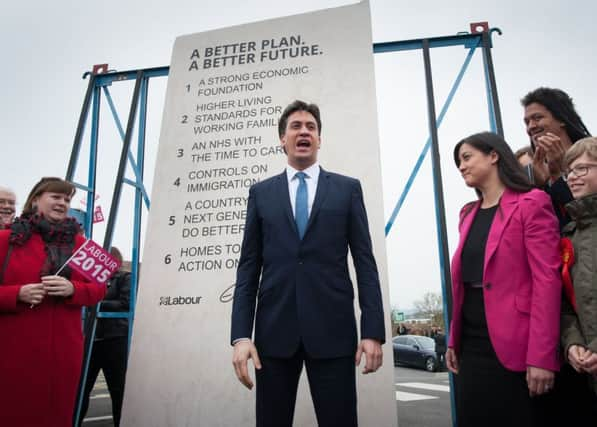No sign of the Ed Stone in election spending details


When Ed Miliband unveiled his election promises carved into a piece of stone that he promised to place in the grounds of 10 Downing Street should he become Prime Minister it prompted many to wonder whether the then Labour leader was playing a practical joke on voters.
Widely derided at the time, it was dubbed the “Ed Stone” in reference to the defeat it preceded for Labour and the Doncaster North MP’s resignation as leader.
Advertisement
Hide AdAdvertisement
Hide AdThe episode prompted three questions: Who thought it was a good idea? Why did no-one stop it? And how much did it cost?
And so when the Electoral Commission published the details of what the political parties spent at the last election yesterday, there was one major item everyone was looking for.
Despite hours of scouring the more than 8,000 entries on the Commission’s spreadsheet there was no sign of this piece of British electoral history and a Labour spokesman was forced to confirm that it had not been included as a result of an “administrative error”.
But the document produced other interesting insights, including the Conservatives’ spending more than £100,000 on chartered flights as the party’s leading figures dashed around marginal constituencies.
Advertisement
Hide AdAdvertisement
Hide AdBudget hotel chainPremier Inn also emerged as one of the big financial winners from the election campaign as the major parties bought up rooms for their teams of activists.
Alongside the big ticket items, there was the far more mundane, including the declaration from Labour that it spent £22.50 in the Leeds City Museum cafe.
More significantly, the figures showed how the Conservatives focused large sums buying space on social media sites, particularly Facebook, to target key groups of voters.
The total spent by all the political parties on campaigning was around £40 million